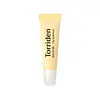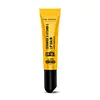What's inside
What's inside
 Key Ingredients
Key Ingredients

 Benefits
Benefits

 Concerns
Concerns

 Ingredients Side-by-side
Ingredients Side-by-side

Polyisobutene
Petrolatum
EmollientDiisostearyl Malate
EmollientSimmondsia Chinensis Seed Oil
EmollientButyrospermum Parkii Butter
Skin ConditioningSorbitan Sesquioleate
EmulsifyingMacadamia Ternifolia Seed Oil
EmollientOlea Europaea Fruit Oil
MaskingAdansonia Digitata Seed Oil
EmollientCeramide NP
Skin ConditioningCeramide Ns
Skin ConditioningCeramide As
Skin ConditioningCeramide EOP
Skin ConditioningCeramide AP
Skin ConditioningStearic Acid
CleansingCholesterol
EmollientVinegar
Sodium Hyaluronate
HumectantPanthenol
Skin ConditioningTrehalose
HumectantHydrogenated Lecithin
EmulsifyingMicrocrystalline Wax
Emulsion StabilisingSargassum Fusiforme Extract
Skin ProtectingGlycerin
HumectantButylene Glycol
HumectantWater
Skin ConditioningCaprylic/Capric Triglyceride
Masking1,2-Hexanediol
Skin ConditioningPolyisobutene, Petrolatum, Diisostearyl Malate, Simmondsia Chinensis Seed Oil, Butyrospermum Parkii Butter, Sorbitan Sesquioleate, Macadamia Ternifolia Seed Oil, Olea Europaea Fruit Oil, Adansonia Digitata Seed Oil, Ceramide NP, Ceramide Ns, Ceramide As, Ceramide EOP, Ceramide AP, Stearic Acid, Cholesterol, Vinegar, Sodium Hyaluronate, Panthenol, Trehalose, Hydrogenated Lecithin, Microcrystalline Wax, Sargassum Fusiforme Extract, Glycerin, Butylene Glycol, Water, Caprylic/Capric Triglyceride, 1,2-Hexanediol
Hydrogenated Polyisobutene
EmollientDiisostearyl Malate
EmollientPetrolatum
EmollientMicrocrystalline Wax
Emulsion StabilisingEthylhexyl Salicylate
UV AbsorberEthylhexyl Triazone
UV AbsorberDiethylhexyl Butamido Triazone
UV AbsorberZinc Oxide
Cosmetic ColorantC12-15 Alkyl Benzoate
AntimicrobialIsostearic Acid
CleansingPolyhydroxystearic Acid
EmulsifyingButyrospermum Parkii Butter
Skin ConditioningButter
Skin ConditioningAstrocaryum Murumuru Seed Butter
EmollientOlea Europaea Fruit Oil
MaskingCaprylic/Capric Triglyceride
MaskingBis-Behenyl/Isostearyl/Phytosteryl Dimer Dilinoleyl Dimer Dilinoleate
EmollientSimmondsia Chinensis Seed Oil
EmollientArgania Spinosa Kernel Oil
EmollientSorbitan Olivate
EmulsifyingRicinus Communis Seed Oil
MaskingEthylene/Propylene/Styrene Copolymer
Euphorbia Cerifera Wax
Beeswax
Emulsion StabilisingSqualane
EmollientPunica Granatum Seed Oil
EmollientGlycerin
HumectantButylene Glycol
HumectantAscorbyl Palmitate
AntioxidantCeramide AP
Skin ConditioningLauryl Laurate
Skin ConditioningSilica Dimethyl Silylate
EmollientTocopheryl Acetate
AntioxidantOlea Europaea Fruit Extract
BleachingOlea Europaea Leaf Extract
PerfumingOligopeptide-1
Skin ConditioningButylene/Ethylene/Styrene Copolymer
Caprylyl Methicone
Skin ConditioningHyaluronic Acid
HumectantHydrogenated Polyisobutene, Diisostearyl Malate, Petrolatum, Microcrystalline Wax, Ethylhexyl Salicylate, Ethylhexyl Triazone, Diethylhexyl Butamido Triazone, Zinc Oxide, C12-15 Alkyl Benzoate, Isostearic Acid, Polyhydroxystearic Acid, Butyrospermum Parkii Butter, Butter, Astrocaryum Murumuru Seed Butter, Olea Europaea Fruit Oil, Caprylic/Capric Triglyceride, Bis-Behenyl/Isostearyl/Phytosteryl Dimer Dilinoleyl Dimer Dilinoleate, Simmondsia Chinensis Seed Oil, Argania Spinosa Kernel Oil, Sorbitan Olivate, Ricinus Communis Seed Oil, Ethylene/Propylene/Styrene Copolymer, Euphorbia Cerifera Wax, Beeswax, Squalane, Punica Granatum Seed Oil, Glycerin, Butylene Glycol, Ascorbyl Palmitate, Ceramide AP, Lauryl Laurate, Silica Dimethyl Silylate, Tocopheryl Acetate, Olea Europaea Fruit Extract, Olea Europaea Leaf Extract, Oligopeptide-1, Butylene/Ethylene/Styrene Copolymer, Caprylyl Methicone, Hyaluronic Acid
 Reviews
Reviews

Ingredients Explained
These ingredients are found in both products.
Ingredients higher up in an ingredient list are typically present in a larger amount.
Butylene Glycol (or BG) is used within cosmetic products for a few different reasons:
Overall, Butylene Glycol is a safe and well-rounded ingredient that works well with other ingredients.
Though this ingredient works well with most skin types, some people with sensitive skin may experience a reaction such as allergic rashes, closed comedones, or itchiness.
Learn more about Butylene GlycolThis ingredient is also known as shea butter. It is an effective skin hydrator and emollient.
Emollients help soothe and soften your skin. It does this by creating a protective film on your skin. This barrier helps trap moisture and keeps your skin hydrated. Emollients may be effective at treating dry or itchy skin.
Shea butter is rich in antioxidants. Antioxidants help fight free-radicals, or molecules that may harm the body. It is also full of fatty acids including stearic acid and linoleic acid. These acids help replenish the skin and keep skin moisturized.
While Shea Butter has an SPF rating of about 3-4, it is not a sunscreen replacement.
Shea butter may not be fungal acne safe. We recommend speaking with a professional if you have any concerns.
Learn more about Butyrospermum Parkii ButterThis ingredient is an emollient, solvent, and texture enhancer. It is considered a skin-softener by helping the skin prevent moisture loss.
It helps thicken a product's formula and makes it easier to spread by dissolving clumping compounds.
Caprylic Triglyceride is made by combining glycerin with coconut oil, forming a clear liquid.
While there is an assumption Caprylic Triglyceride can clog pores due to it being derived from coconut oil, there is no research supporting this.
Learn more about Caprylic/Capric TriglycerideCeramide AP is formally known as Ceramide 6.
Ceramides are intercellular lipids naturally found in our skin that bonds dead skin cells together to create a barrier. Having a strong skin barrier leads to more firm and hydrated skin.
They are known for their ability to hold water and thus are a great ingredient for dry skin. By bolstering the skin ceramides act as a barrier against irritating ingredients. This can help with inflammation as well.
If you would like to eat ceramides, sweet potatoes contain a small amount.
Read more about other common types of ceramides here:
Ceramide NP
Ceramide EOP
Diisostearyl Malate is an emollient and most often used in lip products. It comes from isostearyl alcohol, a fatty acid, and malic acid, an AHA.
As an emollient, Diisostearyl Malate helps create a thin film on your skin to trap moisture in. This helps keep your skin soft and smooth.
Glycerin is already naturally found in your skin. It helps moisturize and protect your skin.
A study from 2016 found glycerin to be more effective as a humectant than AHAs and hyaluronic acid.
As a humectant, it helps the skin stay hydrated by pulling moisture to your skin. The low molecular weight of glycerin allows it to pull moisture into the deeper layers of your skin.
Hydrated skin improves your skin barrier; Your skin barrier helps protect against irritants and bacteria.
Glycerin has also been found to have antimicrobial and antiviral properties. Due to these properties, glycerin is often used in wound and burn treatments.
In cosmetics, glycerin is usually derived from plants such as soybean or palm. However, it can also be sourced from animals, such as tallow or animal fat.
This ingredient is organic, colorless, odorless, and non-toxic.
Glycerin is the name for this ingredient in American English. British English uses Glycerol/Glycerine.
Learn more about GlycerinMicrocrystalline Wax is created by de-oiling petroleum. It is highly refined and purified before being added to cosmetics.
Microcrystalline Wax is used to enhance the texture and create even consistency. It helps stabilize a product by preventing ingredients from separating.
Olea Europaea Fruit Oil is the fixed oil obtained from the ripe fruit of the Olive. In other words - olive oil.
The primary contents of olive oil are glycerides of the fatty acids linoleic, oleic and palmitic.
Olive oil also contains antioxidants such as Vitamin E. Antioxidants may help reduce signs of aging by fighting unstable free-radical molecules. It also contains Vitamins A (retinol), D, and K.
The squalene in olive oil makes it a great emollient. Emollients help soothe and soften your skin by trapping moisture in. This makes olive oil a great skin moisturizer.
Studies show olive oil to have antibacterial and antifungal properties in low concentrations. Another study found olive oil irritated sensitive oily skin. We always recommend speaking with a professional about using this ingredient in your routine.
Due to the fatty acid content, this ingredient may not be fungal-acne safe.
Learn more about Olea Europaea Fruit OilPetrolatum is more commonly known as petroleum jelly. It is created by mixing waxes and mineral oils.
This ingredient is effective at reducing water loss by 99%. This is because it is an occlusive. Occlusives create a hydrophobic barrier on the skin to prevent evaporation. This property makes it great for hydrating dry skin.
Pro tip: Use occlusives, such as this ingredient, on damp skin for the best results.
The quality or origin of petrolatum is only known when disclosed by the brand. Most cosmetic petrolatum has gone through several purification stages.
Another benefit of occlusives is it protects your skin against infection or allergies.
Petrolatum may not be safe for fungal-acne. Studies show mineral oil / petroleum leads to the growth of M. Furfur, a type of yeast.
Learn more about PetrolatumThis oil comes from the seeds of the desert shrub called Jojoba. It is more commonly known as jojoba oil, a non-comedogenic oil.
Jojoba oil does not contain fragrance and has many fatty-acids, making it a great soothing ingredient.
It also contains Vitamin E, a great moisturizing ingredient. Vitamin E is also an antioxidant and protects your skin against oxidative damage.
This ingredient humectant properties, meaning it helps draw moisture from the air. This helps keep your skin hydrated.
While jojoba has antibacterial properties, it is only able to kill some strains of bacteria.
Studies also show it helps in wound healing. In fact, Indigenous cultures have used jojoba as a moisturizer and to help treat burns for centuries.
Fun fact: Jojoba oil similar to natural human skin sebum, so it has a great effect on dry skin. It is also promising with helping to regulate sebum production.
Due to its fatty acid content, Jojoba oil may not be fungal acne safe. We recommend speaking with a professional if you have any concerns.
Learn more about Simmondsia Chinensis Seed Oil